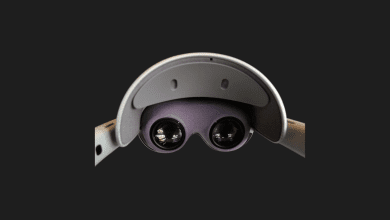VR Headset Sales Plummet, Dashing Meta’s Metaverse Dreams

Sales of VR headsets experienced a sharp decline in 2022, leading to setbacks in Mark Zuckerberg’s Meta company’s ambitions for the metaverse.
In recent years, Mark Zuckerberg initiated a significant shift in the company’s direction by renaming Facebook to Meta. This rebranding signified a comprehensive overhaul, with the company pivoting its focus towards the metaverse, as implied by its new name.
Zuckerberg embarked on a radical transformation, linking the future of Web3 and the digital world with virtual reality. Despite ramping up investments in VR headset products, the technology giant has faced considerable disappointments, as recent reports indicate.
Mark Zuckerberg, who aspired to position himself as a frontrunner in the metaverse realm, has encountered several setbacks in this venture, according to released reports. Reality Labs, Meta’s division dedicated to virtual reality, has incurred losses of about $16 billion since the start of last year, leading to a significant reduction in the company’s net profits.
VR headset sales fell 12 percent

VR headset sales in the U.S. market have declined by 2 percent from the previous year, totaling $1.1 billion. Data shared with CNBC by research firm NPD Group paints an even grimmer picture globally, with shipments of virtual reality headsets dropping 12 percent year-on-year to 9.6 million units.
Last year marked the peak of VR headset sales, buoyed by Meta’s new vision, goals, and promises that captivated people worldwide. Additionally, the pandemic played a role in driving people towards virtual reality, leading to a surge in interest in VR. This resulted in U.S. revenues doubling to $530 million in 2020. Furthermore, Meta’s Oculus Quest 2 device began to dominate the Steam VR platform, capturing about 50 percent of the user share. However, this trend gradually faded, and, surprisingly, hit its lowest point in 2022.
Despite this downturn, Meta CEO Mark Zuckerberg continues to assert that investments in the metaverse will generate millions of dollars in profit in the years ahead. Yet, many market analysts predict a sharp decline in the virtual reality universe starting from 2025, with reports suggesting that even some of Meta’s senior officials share this concern.
John Carmack, a renowned programmer who joined the company following Meta’s acquisition of Oculus in 2014, has made significant remarks recently. Carmack has labeled the current state of metaverse technology as a ‘disappointment,’ criticizing the company’s unproductive approach and resigned from his position, citing a lack of preparedness for the inevitable market competition.











